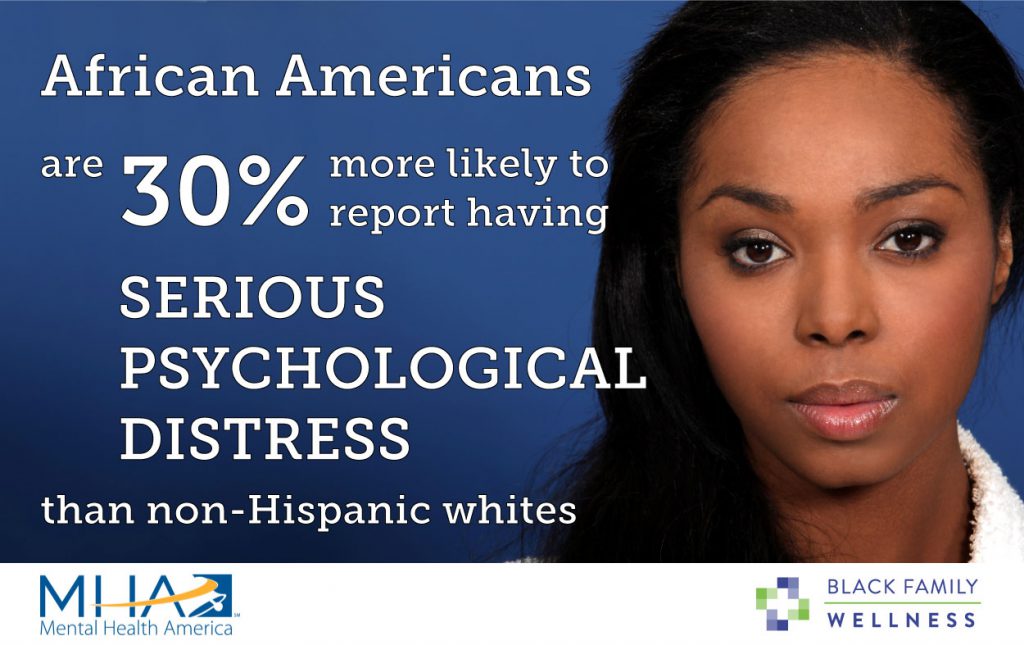Mental health encompasses emotional, psychological, and social well-being. How we handle stress, relate to others, and make choices all relates to our mental health. It is important at every stage of life. Examples of mental health issues include anxiety, behavioral, eating, and mood disorders.
A number of factors contribute to mental health problems. It could be biological, you could have experienced certain trauma or abuse, or perhaps family history. According to information from the U.S. Department of Health and Human Services Office of Minority Health, African American adults are 20% more likely to report serious psychological distress and to have feelings of sadness and hopelessness compared to adult Caucasians. Even with that statistic, only 31% of African Americans think depression is a health problem.
Research also shows that a number of barriers affect African Americans’ attitudes towards seeking treatment and services for mental illness, such as denial, embarrassment, and lack of money/insurance.
MentalHealth.gov lists the following early warning signs for mental health issues:
- Eating or sleeping too much or too little
- Pulling away from people and usual activities
- Having low or no energy
- Feeling numb or like nothing matters
- Having unexplained aches and pains
- Feeling helpless or hopeless
- Smoking, drinking, or using drugs more than usual
- Feeling unusually confused, forgetful, on edge, angry, upset, worried, or scared
- Yelling or fighting with family and friends
- Experiencing severe mood swings that cause problems in relationships
- Having persistent thoughts and memories you can’t get out of your head
- Hearing voices or believing things that are not true
- Thinking of harming yourself or others Inability to perform daily tasks like taking care of your kids or getting to work or school

- If you believe you may have or you are suffering from a mental health problem, MentalHealth.gov recommends reaching out for help by building your support team, finding a peer group, participating in your treatment decisions, and developing a recovery plan.
- For more information on mental health:
- MentalHealth.gov
- American Psychiatric Association
- Centers for Disease Control and Prevention

